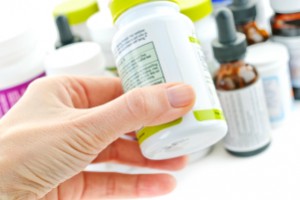A new update on the use of anti-reflux medications in children.

A newly released study has shown that the use of anti-reflux medications in infants can more that double the risk of developing a food allergy as they get older.
This large retrospective study published in JAMA Paediatrics looked at 800 000 children who had been prescribed anti-reflux medication (H2 receptor antagonist or a proton pump inhibitor). The children prescribed this medication in the first 6 months of life more than doubled their risk of developing food allergies and were also associated with an increased risk of other allergies, asthma, and medication reactions.
Overall the study examines the role of histamine in the role of building the immune system functions and outlines that anti-reflux medication can increase the body’s sensitivity to allergens that are ingested, therefore making children more susceptible to developing allergies.
The study admits that it does have limitations and discusses the theory that children who present with reflux may already have an allergy that is causing the reflux to occur. However even with the study’s known limitations it does raise the fact that food allergies in the community are increasing, and this may be due to the digestive immune system functions being suppressed by the over use of anti-reflux medication
So, what does this mean for us as a community?
Overall the study suggests that the best practice would be to minimise the use of anti-reflux medications in children, especially in those younger than 6 months. The study further states that these medications should only be used if there is a clear medical benefit for the child. If there are no medical benefits then the child is potentially being exposed to side effects that can impact them throughout their life.
Reference: JAMA Pediatr. Published online April 2, 2018.
doi:10.1001/jamapediatrics.2018.0315
Please consult with your doctor or other health care professional if you are concerned that your child has reflux.
Medical disclaimer: Tips provided need to be considered in conjunction with medical advice. For immediate concerns please contact HealthDirect (Australia wide) on 1800 022 222 to talk to registered nurses 24hrs a day, and in emergencies call 000.
Did you have a baby with reflux?
Community share their experiences of a baby with reflux.













